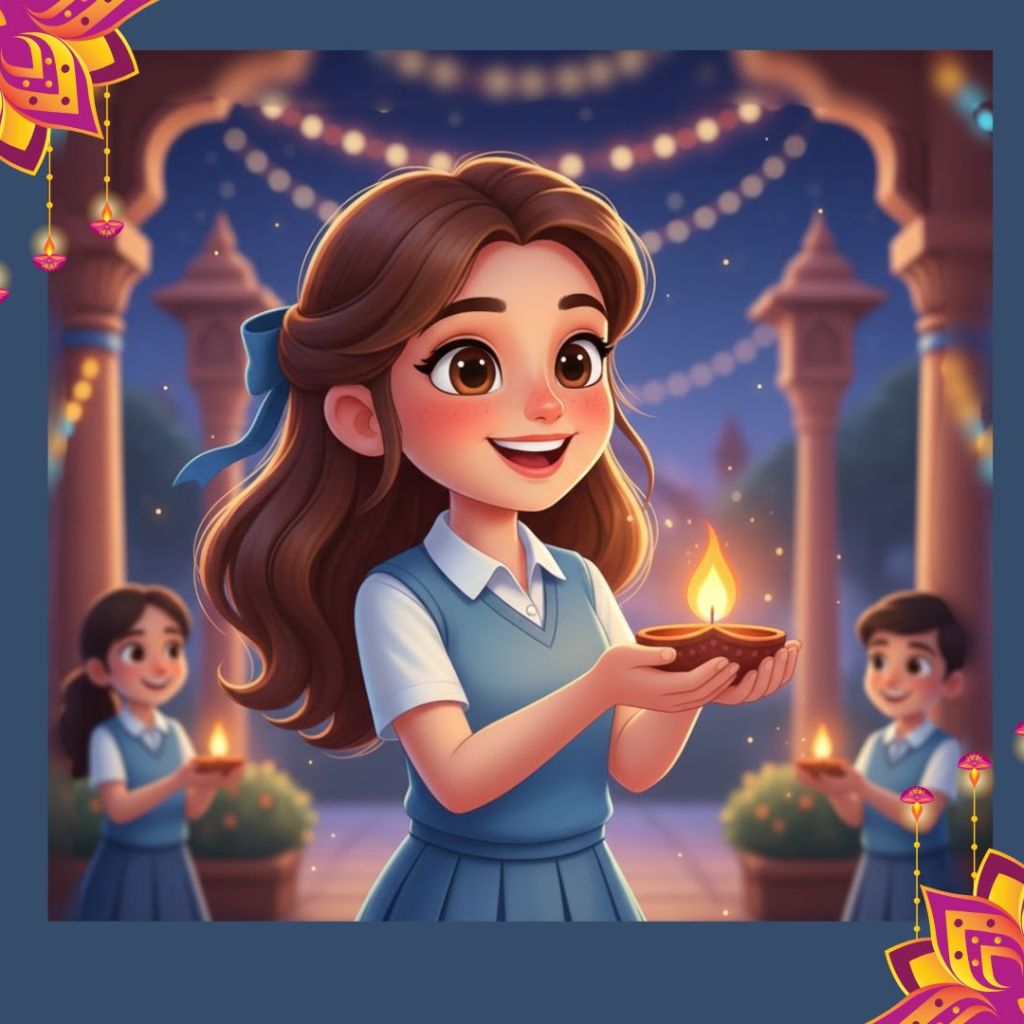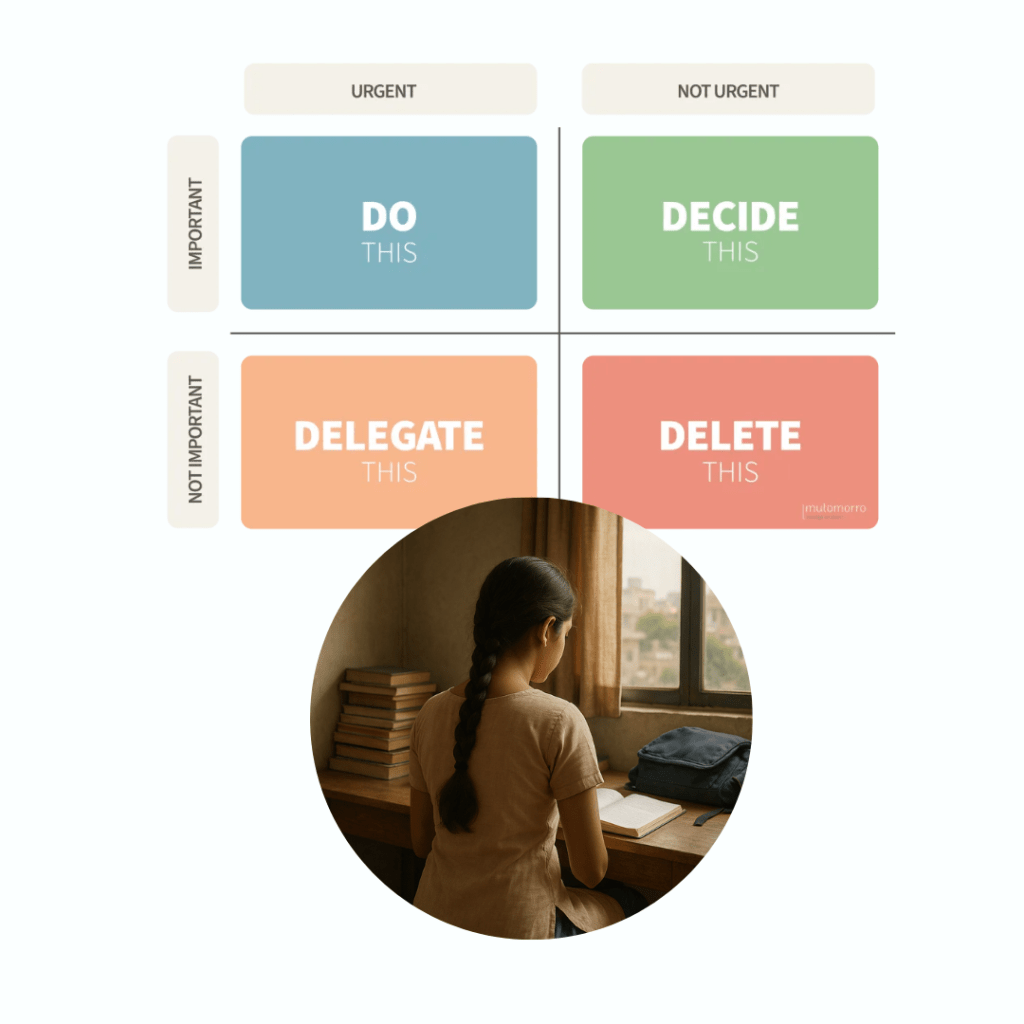I still remember the afternoon Mrs. Sharma walked into our classroom carrying a small brass diya and a worn copy of the Ramayana. It was late October, and the air outside smelled of rain-soaked earth and anticipation. Diwali was just around the corner, and instead of diving into our usual geography lesson, she pulled her chair closer to us and said, “Today, let me tell you a story that changed my life when I was your age.”
We leaned in, curious.
The Story That Started Everything
“Imagine,” she began, her voice dropping to almost a whisper, “walking through a dark forest for fourteen years. You’ve lost your kingdom, your home, your crown—everything. But you haven’t lost your principles.”
She was talking about Lord Rama, of course. But the way she told it—with pauses that let us feel the weight of exile, with questions that made us wonder what we would do in his place—it didn’t feel like mythology. It felt real.
“And then,” she continued, her eyes lighting up, “after all those years of struggle, when Rama finally defeats Ravana and returns home, do you know what the people of Ayodhya do?”
“They light diyas!” we chorused, already knowing this part.
“Yes,” she smiled. “But why? Not just to celebrate a king’s return, but to show that even after the longest, darkest night, light will find its way back. They were celebrating something bigger than victory—they were celebrating hope itself.”
That was the first time Diwali felt like more than just new clothes and firecrackers to me.
The Lesson Hidden in Every Diya
Mrs. Sharma then told us something that stuck with me for years. She spoke of Narakasura, the demon Krishna defeated. “You know what Narakasura represents?” she asked. “Not some monster living in a far-off cave. He represents the darkness we carry inside—our jealousies, our fears, our moments of selfishness.”
She looked at each of us. “Every time you light a diya this Diwali, you’re not just lighting a lamp. You’re making a promise to push back against your own inner darkness.”
I thought about the times I’d been mean to my younger brother, the homework I’d lied about completing. Suddenly, Diwali felt less like a festival and more like a mirror.
When Bollywood Made It Click
Later that week, Mrs. Sharma did something unexpected. She showed us a clip from Mohabbatein—the Diwali scene where the entire college lights up with diyas, and the song “Pairon Mein Bandhan Hai” plays.
“Watch carefully,” she instructed. “What do you see?”
“People celebrating,” someone said.
“People together,” another added.
“Exactly,” Mrs. Sharma nodded. “Diwali isn’t just about individual light. It’s about how our lights come together to illuminate the whole world. Look at how they’re not just lighting lamps—they’re building bonds, healing old wounds, choosing love over rules.”
That scene made something click. The same values from ancient texts like the Ramayana and the Padma Purana weren’t stuck in the past—they were alive, breathing, dancing on our screens, relevant to our lives today.
Even Dilwale Dulhania Le Jayenge, though not explicitly about Diwali, captures that same spirit—the importance of family, respect, staying true to yourself while honoring tradition. Mrs. Sharma pointed out how the film’s festive moments always brought people closer, just like Diwali does.
The Rangoli That Taught Me Patience
That year, Mrs. Sharma organized a rangoli competition. My friend Priya and I partnered up, confident we’d win easily. We had grand designs planned—peacocks, lotus flowers, the works.
But ten minutes in, I’d already messed up twice. The colored powder wouldn’t stay in the lines. My hand was shaking. I wanted to quit.
“Remember what we learned about Diwali preparations?” Mrs. Sharma asked, kneeling beside me. “About how families spend days cleaning, preparing, making everything perfect? That patience, that dedication—that’s the real lesson. The beauty comes from the effort, not just the result.”
We didn’t win that competition. But Priya and I created something together, laughing through our mistakes, starting over when we needed to. Later, I realized we’d learned what the Bhagavad Gita teaches—to focus on the action itself, not obsess over the outcome.
The Diwali That Changed How I See Darkness
Years have passed since Mrs. Sharma’s classroom, but every Diwali, I think about those lessons. When I face a difficult situation now—a failed exam, a friendship that’s fallen apart, moments when everything feels dark—I remember the story of Rama walking through those forests, never losing faith.
I remember that diyas are small. Just tiny clay lamps with a bit of oil and a cotton wick. But enough of them together? They can light up entire cities.
I think about Narakasura and realize that my biggest battles aren’t with external enemies—they’re with my own doubts, laziness, and fears. And just like Krishna, I have the power to defeat them, one small victory at a time.
I remember the rangoli and how the most beautiful things require patience, mess, and the willingness to start over.
The Real Victory of Light Over Darkness
Diwali teaches us that darkness isn’t just something “out there” to be afraid of. Darkness is also the absence of courage, the missing pieces of kindness, the spaces where hope hasn’t reached yet. And light? Light isn’t just about happiness or success. It’s about choosing goodness even when it’s hard, standing up for what’s right even when you’re scared, holding onto hope even when you can’t see the way forward.
When we share sweets with neighbors, we’re practicing generosity. When we clean our homes, we’re learning that transformation requires effort. When we forgive old grievances before the festival, we’re building emotional strength. When we gather as families, we’re reminded that we’re never alone in the darkness.
These aren’t just nice traditions—they’re training grounds for life.
A Festival That Never Ends
Mrs. Sharma once told us something I’ll never forget: “The real Diwali isn’t the one night you light lamps outside your house. The real Diwali is every day you choose to be a light in someone else’s darkness. Every time you choose courage over fear, kindness over cruelty, hope over despair—that’s Diwali.”
So this year, as the diyas flicker and the sky fills with light, I’m not just celebrating an ancient victory or a religious festival. I’m celebrating every teacher like Mrs. Sharma who showed us that the most powerful lessons don’t come from textbooks—they come from stories told with love, films watched with meaning, and traditions practiced with understanding.
I’m celebrating the truth that we all carry both darkness and light within us, and we get to choose which one we feed.
And I’m celebrating you—yes, you reading this—because if you’ve made it this far, you’re someone who believes that festivals can be more than just holidays, that stories can change lives, and that light, no matter how small, always matters.
Happy Diwali. May your inner light shine brightest of all.
Story By Guest Author Khushi Sharma



